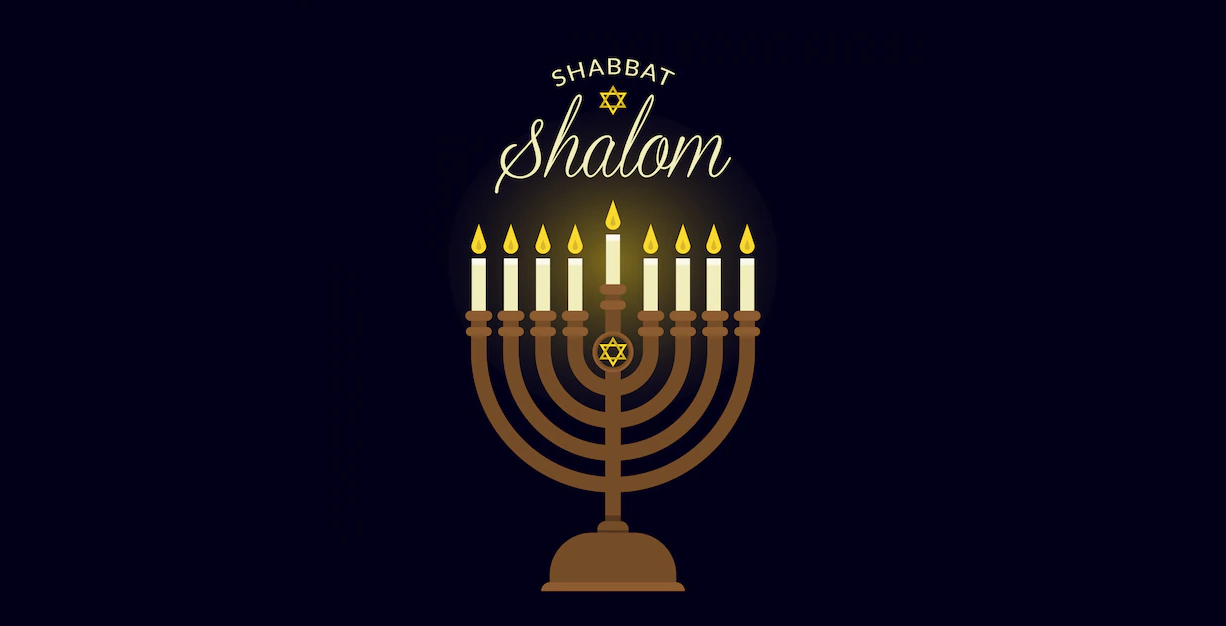
TORAH TEACHING
Video Blog, Worship / Avodah
EREV SHABBAT: EVERY FRIDAY AFTER SUNSET
SHABBAT MORNING SERVICE: COMMENCE EXACTLY @10:30AM EVERY SATURDAY
MUSIC / DANCE MINISTRIES / LITURGY / TORAH / BIBLE STUDY
KBY welcome everyone who has gift/love for music and dance to the worship ministries as it’s been formed currently and once formed we’ll not allow everyone to dance with the worship team during service. Please understand that the ministry of dance is a Spirit-led one which also requires practice and commitment. If you would like to dance, please speak with the Dance Worship leader about joining the team.
RABBI DRASH
Parashat Ki-Tissa 5785
What’s your LOT?
Adar 15, 5785 / March 15, Sat. 2025
By Rabbi Yitzhak Avraam
AT FIRST IT might not seem that there is very much connecting this week’s parsha and Purim, other than the fact they are both on the same day this year. Until, that is, we recall that the Machtzis-Hashekel collected at the beginning of the parsha is what the Gemora calls the “medicine before the illness” (Megillah 13b). Haman was prepared to spend 10,000 kikar kesef to buy the right to kill all the Jews, but it turned out that the Machtzis-Hashekel given in the desert counteracted that about a thousand years in advance.
Okay, but what does one have to do with the other? Because of the way what we do in the physical world affects the spiritual world, which also answers another question from a different parsha, which is, what did Moshe Rabbeinu mean when he asked God, regarding Korach and his assembly:
“Do not accept their offering. I have not taken a donkey from a single one of them, and I have not harmed a single one of them.” (Bamidbar 16:15)
What was he worried about? They were reshayim(wicked or evil). What do we care if an evil person does something holy? If anything, they profane it because they are evil. The answer is, never under-estimate the power of a “good” deed, or what might even be considered to be one by God.
As the Gemora says, God never leaves any good deed unrecompensed. It could be that the person doing the act had no intention to do good and, perhaps, even the opposite. But every deed in and of itself has a very specific effect on the universe for good or for bad (at least what appears bad to us). If you throw a ball at a window, it will break the glass whether you meant to or not
Although Korach was deadly wrong about his right to be Kohen Gadol, he still did the act of an Incense Offering, and with the intention to do it as prescribed by the Torah. Some of the people in Korach’s assembly might have even thought they were doing a mitzvah. A lot of good might have been in with all the evil.
Moshe Rabbeinu understood that. Though he knew he was one hundred percent correct about everything he had said and arranged, he was still worried about any acknowledgment of good by God, which would only confuse people. He wanted the final result to leave not even a single doubt in the minds of those who survived that everything had come from God, and not him.
But how does that compare to Haman’s willingness to pay a lot of money, billions by today’s standards, to eradicate the Yehuden? At least Korach and his assembly did something that resembled a mitzvah, the right act by the wrong people. Haman’s act was just pure evil, a wrong act by a wrong person.
But even the whitest of white paints becomes gray if you add enough black paint. In other words, had the Jews of Haman’s time done nothing wrong, then Haman’s act would have counted for nothing. But Megillas Esther starts off talking about how that was not the case, attending Achashveros’s feast, among other anti-Torah activities. A major part of Ezra’s job prior to returning to Eretz Yisroel after the Purim story was sorting out many mixed marriages. (See my comment in the video on this topic)
When that becomes the case, then the Jews “legitimize” acts their enemies might commit to have the “right” to inflict harm on the them. As the Gemora says, Amalek is a “punishing belt” in the hand of God when the Jews need spiritual straightening out. The “chov” (debt) of the Jews becomes the “zechus” (merit) of their enemy.
Evil people will always be punished for what they do no matter how “deserving” their victims might be. Any punishment a person endures is between them and God only. A human perpetrator acting on behalf of God will have to answer for themself as to why they were so available to be such an instrument for bad. But until they do, they can, and have done a lot of damage to a lot of otherwise good people.
Purim ended up being a success story for the Jews with a very happy ending. But through it God wanted to teach us a lesson about how He runs His world, and how easily our spiritual failures can lead to our enemies’ successes. For all the Purims that have ever occurred, so many other national crises have not ended favorably for us.
This is why we have to include in so many prayers our wishes that Thanks God that He block the plans of the evil against us. It’s not what they plan to do that should worry us. It is what we do, as individuals and as a nation, to empower them to carry out those plans. We don’t always have the foresight to know what to do today for the future, but that doesn’t mean we shouldn’t try.
As the Gemora says, a wise person is someone who considers the future implications of their current actions. The story of Purim vis-a-vis this week’s parsha is quick review of just how wise it is to live that way.
Remember Torah is all about relationship NOT religion.
Shabbat Shalom!!!
LAST WEEK
Parashat Tetzaveh 5785
You’re the LIGHT of the World
Adar 8, 5785 / March 8, Sat. 2025
By Rabbi Yitzhak Avraam
In this week’s Parshas HaShavua TeTzaveh the Torah states in Shmos 27:20 “V’Ata TeTzaveh Es Bnai Yisrael V’Yikchu Eilecha Shemen Zayis Zach Kasis LaMaor L’Ha’alos Ner Tamid”. “You, [Moshe], must command the Israelites to bring you clear, illuminating oil, made from hand crushed olives, to keep the lamp constantly burning”. Rashi explains the word ‘crushing’- the olives were crushed in a mortar; they are not ground with a mill-stone. This is done to assure that there will not be any remaining sediment. Only after he has obtained the first drop does he put the olives into a mill and grinds them. The second oil is unfit for the candlestick, but it is fit for the meal offerings, as it is stated ‘beaten for the light’, but it is not essential that it be beaten for meal offerings. Rav Aleksander Levinson explains that the difference between oil used for the candles and oil used for the offerings is the same difference in the two approaches to serve Hashem.
Some serve God because they are commanded and thereby do it, while others serve Hashem as a hart (deer) yearns or longs to oblige. In the sense of the hart or deer, a person serves Hashem through an inner desire to get close to Him. The innermost voice within tells him to do the Mitzva. On the other hand, the person who does the Mitzva strictly because he is commanded to do so is like a servant who follows the command of his master without knowing why, without understanding the purpose for doing the Mitzva. Both methods of serving God are observed, and both methods are necessary.
Taking an olive and crushing it to take the oil for lighting of the menorah was strictly a commandment. The first words of the parsha and the name of the parsha “Tetzaveh” is the command. The command represents the first drop of oil to ooze out from the crushing process. This resulted from the obligation of the Mitzva itself. The second drop of oil for the Mincha offering was not from the crushing. The Korban Mincha was brought to show gratitude and give thanks for all the goodness Hashem bestows upon us. This sacrifice and offering came from within our essence, from a deep desire to get close to and cling to God. As it states in the beginning of Vayikra, it was the ‘Nefesh’- the soul – and the person who would offer it, not because it was a command. The word Nefesh/soul is only mentioned by the Mincha Korban.
Each and every person serves Hashem within his or her own capacity, some needing a direct command, others willing to do it on their own.
These two paths or philosophies need to be implemented in EVERY single Jew, sometimes using one method and, when necessary, sometimes applying the other. With regard to the extreme generations, we need to assign different methods to each group. When Baalei Teshuva deal with their non-observant relatives it must be taught through Tzivuy or command, this is what we do and this is how we do it. We educate them to the basic tenets and rules of the Torah. When it comes to the educated children of Baalei Teshuva, the parents need to display an inner spiritual desire to get ever closer to Hashem. Parents from all backgrounds need to teach by example and display the fire that burnt in them to get close to Hashem. The ritualistic component obviously must be done, but to educate our children it must be from within and the desire that we want to do the Mitzvos not that we must do the Mitzvos.
Our hope and prayer are to educate from both sides and bring the family together, showing and displaying a love of Torah and fulfilling the Mitzvos because we are commanded to do so and because we want to do so.
Remember Torah is all about relationship NOT religion.
Shabbat Shalom!!!
